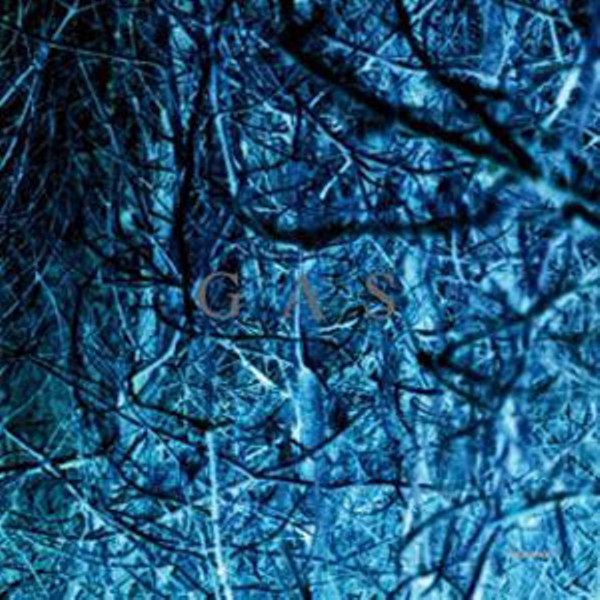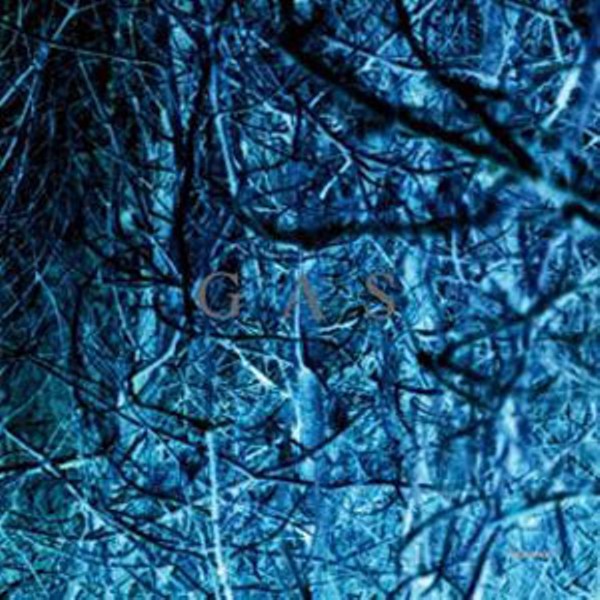Album by Gas
Kompakt
The sound of Gas is tough to push into an established subgenre corner. Too stagnant to be “techno,” yet too mobile to be “ambient,” Gas elegantly moved beyond both genres with a certain otherness that seems to be neither. Closely linked to the already well-defined German minimal techno sound, artist/musician/thinker Wolfgang Voigt’s work as Gas grew to be the blueprint of a sound christened as “pop ambient.” It was explored further by like-minded artists on Voigt’s own Kompakt label, which has now reissued four previously out-of-print Gas full lengths from 1996-2000 as this box set. Functioning as a ghost-like influence in experimental music circles and beyond, the pop ambient sound has become a prime subcurrent in 21st century underground music, and it’s in these albums that the subgenre was both born and perfected.
If minimal techno functions as techno’s skeleton, Gas is something like its circulatory system, blood flowing and veins throbbing to the pulse of a distant bass drum’s heartbeat. These tracks have no snare drum or syncopation in sight whatsoever except for a frequent muffled 4/4 kick drum. Instead they rely on drifting layers of hazy looped ambience to create a driving, ominous sound that swirls in the stereo field, engulfing the listener. The result is less like what most think of as techno and more like the slow breath of an ecosystem. Instead of a cold, digital feeling, the music evokes something very natural, and appropriately Voigt cites his teenage experiments with LSD in the German Koenigsforst forest as a key influence.
Similar to the work of drone practitioners like La Monte Young and Phil Niblock, the pieces here have no real beginning or end, as if in each track we’re only catching a brief glimpse into overlying looped moments extending deep into eternity, each song with the potential to be a lifetime. The track lengths (usually falling around the 10-minute mark) seem almost arbitrary, giving the impression of an infinite piece being captured by a finite medium. Together, the pieces seem like one long, outstretching work, yet there’s a clear progression from each album to the next, with a beautiful arc to the four releases that let them sit well both as individual albums and as pieces of a whole cycle. It’s not until the second album, Zauberberg, that Voigt found the distinct Gas voice, and not until the third, Koenigsforst,that this voice was perfected in complete elegance. By his last and greatest Gas release, Pop, Voigt’s touch was masterful, creating what will surely stand out as one of the high-water marks of late-20th century electronic music.
Meaning within Voigt’s work runs deeper than one would think: Though it is not even vaguely apparent to the causal listener, Voigt’s work as Gas has an inherently political bent to it, with a specific creative approach that is as much an intellectual move as an aesthetic one. The majority of the music on these discs was constructed from highly obscured samples from iconic German composers such as Wagner and Berg in an attempt to create a new musical form of “pop” music that is distinctly German and linked with the roots of the nation’s music, yet freed from any stale associations that may lie on the face of the source material. By taking giant emotional orchestral swells and heavily reworking them digitally, Voigt created a form of musical expression that simultaneously looked forwards and backwards in time, paying homage to the past whilst sounding nothing like it (and also giving the albums their heavy analogue feel). This was a bold move for Voigt, as this very stance got him in heaps of trouble with the German press when he was inaccurately labeled as a right-wing cultural purist, requiring constant clarification of his intentions as an artist (the albums were released in the wake of great German leftist fear of neo-Nazi-esque nationalism). For the average listener this kind of artistic hyper-intellectualizing may seem more like an afterthought to the music itself, but it is important to know that there is meaning and intent that lies beyond the ambience.
— Spencer Doran


Comments